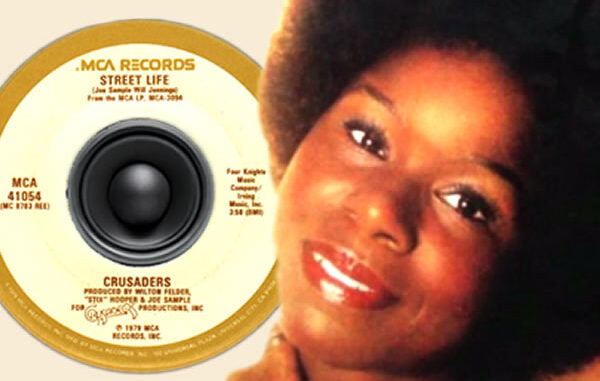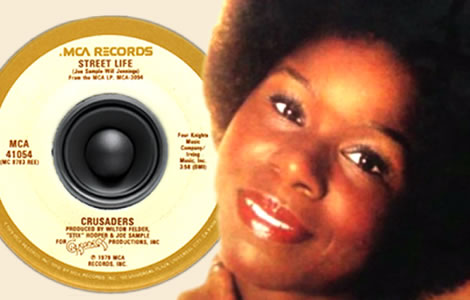
“Street Life,” a 1979 hit by The Crusaders featuring the soulful voice of Randy Crawford, is a song that has endured as a timeless blend of jazz, funk, and soul.

Known for its dynamic sound, it captured the imagination of listeners worldwide and became one of The Crusaders’ most celebrated recordings. The track not only elevated Randy Crawford’s career to international stardom but also solidified The Crusaders’ place in the jazz-funk genre.
The appeal of “Street Life”
“Street Life” draws listeners in with its infectious groove and compelling lyrics that reflect urban life in all its vibrancy and challenges.
The song’s upbeat tempo, driven by a tight rhythm section, blends the jazz expertise of The Crusaders with Randy Crawford’s velvety vocals. It’s a sound that crosses genres, making it equally popular in jazz clubs, R&B venues, and dance floors alike.
The appeal of “Street Life” lies in its seamless fusion of jazz improvisation with the infectious rhythms of funk and soul.
The track’s powerful brass section, combined with a propulsive bass line and syncopated drumming, creates an irresistible foundation for Crawford’s commanding yet smooth vocal delivery. The song has a cinematic quality, conjuring images of bustling city streets, people from all walks of life, and the excitement and danger of urban existence.
The meaning of “Street Life”
Lyrically, “Street Life” explores themes of survival, independence, and the challenges faced by those living in a vibrant but often unforgiving urban environment.
Crawford sings about the allure and struggles of street life, the temptations, and the dangers that come with navigating a city’s social landscape. She captures the paradox of the city: a place full of excitement, yet fraught with risk.
One interpretation of the song is that it speaks to the lives of people on the margins, striving to find their place amid the chaos.
Crawford’s voice conveys a sense of resilience and strength, which resonates with listeners who have experienced or can imagine the thrill and hardships of living on the streets.
Chart success of “Street Life”
Upon its release in 1979, “Street Life” became a commercial success, charting in various countries and leaving an indelible mark on the global music scene.
In the United States, the song reached No. 36 on the Billboard Hot 100 chart, a significant achievement for a jazz-funk track in a chart typically dominated by pop and rock. It also fared well on the R&B charts, where it reached No. 17.
In the United Kingdom, “Street Life” made an even greater impact, climbing to No. 5 on the UK Singles Chart. Its success there was driven by both the growing popularity of jazz-funk in the UK and Crawford’s vocal prowess, which captivated British audiences.
The song’s presence on UK radio stations and its appeal in dance clubs ensured its status as a favourite among British listeners.
Across Europe, the song saw chart success in countries like Belgium, where it peaked at No. 3, and in the Netherlands. Its appeal also extended to Asia and Australia, where it found a home on both mainstream radio and in underground club scenes.
The combination of The Crusaders’ instrumental sophistication and Crawford’s compelling voice allowed “Street Life” to transcend geographical boundaries and become a global anthem.
Randy Crawford’s musical career
Randy Crawford, born in 1952, began her career as a jazz and R&B singer, making a name for herself with her unique vocal style.
She first gained attention performing with established artists such as George Benson and Cannonball Adderley, before rising to prominence with “Street Life.”
Her voice is often described as smooth, emotive, and powerful, capable of delivering both tender ballads and upbeat tracks with equal mastery.
Following the success of “Street Life,” Crawford embarked on a solo career that solidified her reputation as one of the finest vocalists of her generation.
She scored a series of hits, particularly in Europe, with songs like “One Day I’ll Fly Away,” “Rainy Night in Georgia,” and “Almaz.” Crawford’s ability to blend jazz, soul, and R&B made her a versatile artist, appealing to a wide range of listeners.
Her international success continued throughout the 1980s and 1990s, and she remains an iconic figure in the world of jazz and soul. Crawford’s voice, full of warmth and emotional depth, has earned her critical acclaim and a dedicated fan base around the world.
The Crusaders: pioneers of jazz-funk
The Crusaders, originally formed in the early 1960s as The Jazz Crusaders, were a group of highly skilled musicians who played a major role in the evolution of jazz and funk music.
The band’s core members, Joe Sample (keyboards), Wilton Felder (saxophone), and Stix Hooper (drums), brought a wealth of talent and creativity to the group, blending elements of hard bop, soul, and jazz fusion to create a distinctive sound.
By the 1970s, The Crusaders had transitioned to a more electric and funk-oriented style, reflecting the changing landscape of jazz at the time. Their music became more accessible to mainstream audiences while still retaining the improvisational spirit of jazz.
“Street Life” was the pinnacle of their success, combining their instrumental prowess with a crossover appeal that resonated far beyond traditional jazz listeners.
The Crusaders’ ability to seamlessly blend genres made them pioneers in the jazz-funk movement, and their influence can still be felt today in contemporary jazz and R&B music.
Their collaboration with Randy Crawford on “Street Life” was a milestone for both the band and Crawford, and it remains a testament to the power of collaboration between musicians of the highest calibre.
Capitol.fm – where there’s Always a Better Song
“Street Life” by The Crusaders featuring Randy Crawford is a timeless classic that continues to captivate listeners with its infectious groove, thought-provoking lyrics, and powerful vocals.
Its chart success in the US, UK, and beyond demonstrates its global appeal, and both Crawford and The Crusaders cemented their place in music history with this iconic track.
Randy Crawford’s soulful vocals elevate The Crusaders’ jazz-funk classic “Street Life” to global acclaim
